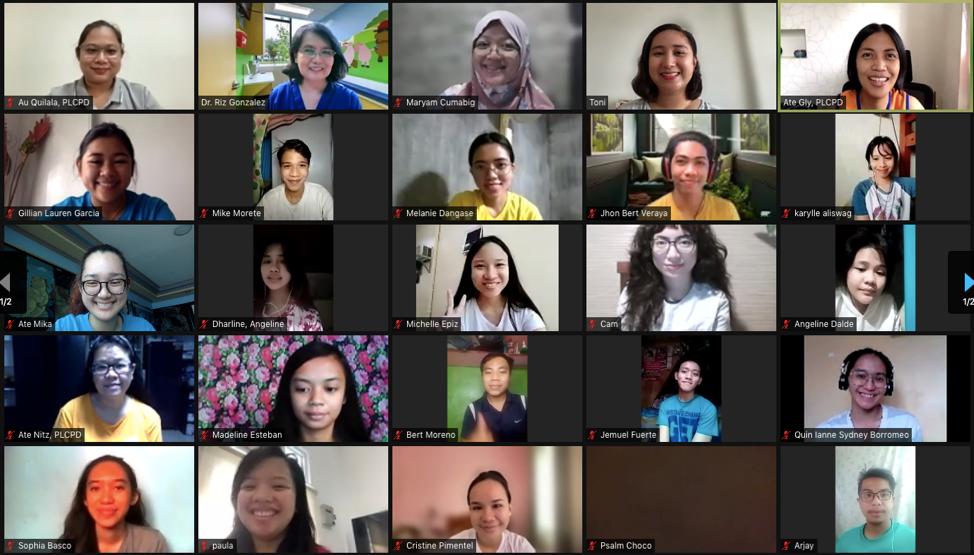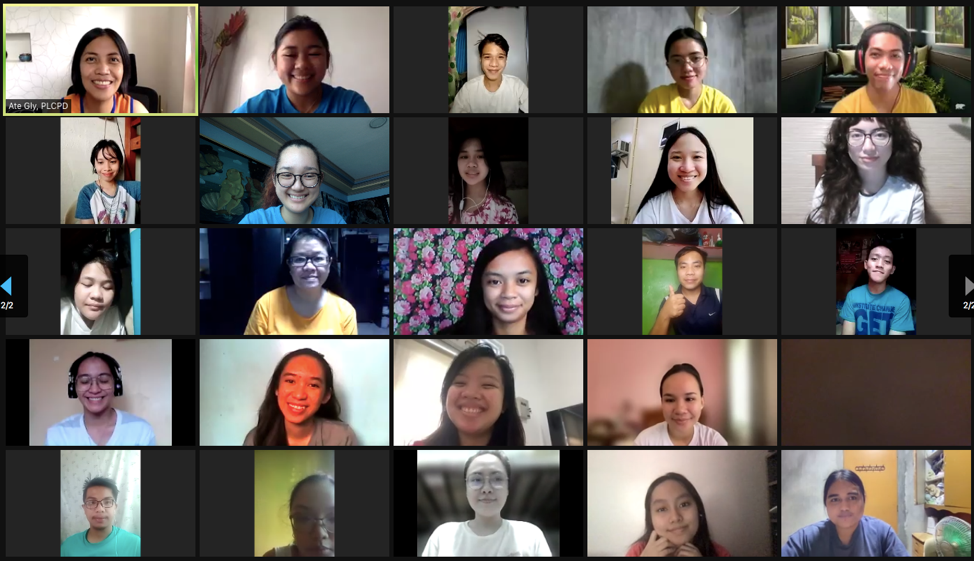Tobacco-Free Generation young leaders discuss why tobacco is a child rights and young people’s issue
The Philippine Legislators’ Committee on Population and Development (PLCPD) and the Child Rights Network (CRN) conducted the first issue orientation for the Tobacco Free Generation-Young Leaders Program on October 16.
PLCPD Executive Director, Mr. Romeo Dongeto expressed the important role of young leaders in advocacy. Advocacy Coordinator of the Campaign for Tobacco-Free Kids, Atty. Rhia Muhi, discussed how the youth are targeted and deceived by the tobacco industry and commends the participation of the young leaders in the program.
Children’s Rights and Tobacco Control
As signatories of the United Nations Convention on the Rights of the Child (UNCRC), the Philippines is obligated to respect, promote, protect and fulfill the rights of every child. It is the government’s responsibility to implement the UNCRC, submit the implementation report and respond to the observations of the UN Committee on the Rights of the Child.
Dr. Mariella Castello, Health and Nutrition Specialist of UNICEF Philippines, presented the categories of child rights: Survival, Development, Protection and Participation. She discussed the various rights of children affected by tobacco and provided examples on how tobacco industry practices violated child rights, such as engaging in child labor through the manufacture and sale of cigarettes, and compromising children’s health through direct tobacco use and exposure to secondhand smoke, and the tobacco industry’s introduction of flavors attractive for the youth.
How is tobacco affecting children and youth?
Tobacco accounts for 8 million deaths annually. According to the Global Youth Tobacco Survey, the Philippines ranks fifth with the most youth tobacco users in the Southeast Asia region. There is also a rising problem in e-cigarette smoking as 1 in 7 students aged 13-15 years old use e-cigarettes.
Dr. Riz Gonzalez, Chairperson of the Philippine Pediatric Society Tobacco Control Advocacy Group, explained how tobacco exposure affects all ages of the child: from prenatal exposure, passive childhood exposure and active smoking. Tobacco and e-cigarette use pose numerous potential health risks, most notably the risk of developing cancer due to heightened exposure to carcinogens. Dr. Gonzalez also pointed out that e-cigarettes have 2,000 unknown dangerous chemicals with little data on the long-term negative effects.
The youth are targeted by the tobacco industry as the next-generation users. Adolescents are developmentally primed for drug use and developmentally susceptible to addiction, further heightening their vulnerability to e-cigarette addiction. According to studies, youth who vaped were 4.7 times more likely to change their perception on the dangers of smoking tobacco. Therefore, instead of e-cigarettes being a “cessation” device, e-cigarettes may act as the “gateway” or shift towards tobacco consumption. With this presentation, Dr. Gonzalez encouraged the young leaders to use their platform and make the call for action in creating a tobacco-free environment.
The current policy and legal framework regarding tobacco control regulates the manufacture and distribution of such products, restricting sale to young people. However, the proposed Non-Combustible Nicotine Delivery Systems Act covering e-cigarettes and heated tobacco products lowers the age of access from 21 to 18 years old, allows flavors, online trade, and transfers regulatory powers on the products from the Food and Drug Administration to the Department of Trade and Industry – treating it as regular consumer products. The bill has been approved on Third and Final Reading in the House of Representatives, while the Senate version of the bill is currently in the Period of Interpellation.
The Young Leaders Program was launched by CRN and PLCPD on September 3. The program includes more than 30 young leaders throughout the Philippines, ages 15-24, with the aim of strengthening youth advocacy and empowering the young leaders to be the voice of the Tobacco-Free Generation Campaign.


